Celebrities and global icons who died in 2022
Remembering famous figures the world lost this year
A free daily email with the biggest news stories of the day – and the best features from TheWeek.com
You are now subscribed
Your newsletter sign-up was successful
The past year saw the deaths of several high-profile figures including Britain’s longest-serving monarch, Queen Elizabeth II, as well as the former prime minister of Japan Shinzo Abe, who was assassinated, and Mikhail Gorbachev, the final leader of the Soviet Union.
Alongside historic world leaders, the deaths of several prominent figures in the field of entertainment were mourned, from the Scottish actor and comedian Robbie Coltrane, best known for portraying Hagrid, to Olivia Newton-John, famous for her iconic role as Sandy in Grease.
As the year nears its close, here is a reminder of some of the well-known people we lost in 2022.
The Week
Escape your echo chamber. Get the facts behind the news, plus analysis from multiple perspectives.

Sign up for The Week's Free Newsletters
From our morning news briefing to a weekly Good News Newsletter, get the best of The Week delivered directly to your inbox.
From our morning news briefing to a weekly Good News Newsletter, get the best of The Week delivered directly to your inbox.
Sidney Poitier – 6 January

Sidney Poitier, who died aged 94, was the first black actor to become a matinee idol – and the first black winner of the best actor Oscar. He won his Academy Award for Lilies of the Field (1963), in which he played an itinerant labourer who helps a group of German nuns build a church in Arizona.
Poitier also starred in three box-office smashes: Guess Who’s Coming to Dinner, about an interracial romance; To Sir, with Love, set in a school in London’s East End; and In the Heat of the Night, which is now considered a classic. Having been awarded an honorary knighthood in 1974, Poitier received the US Presidential Medal of Freedom in 2009.
Meat Loaf – 20 January
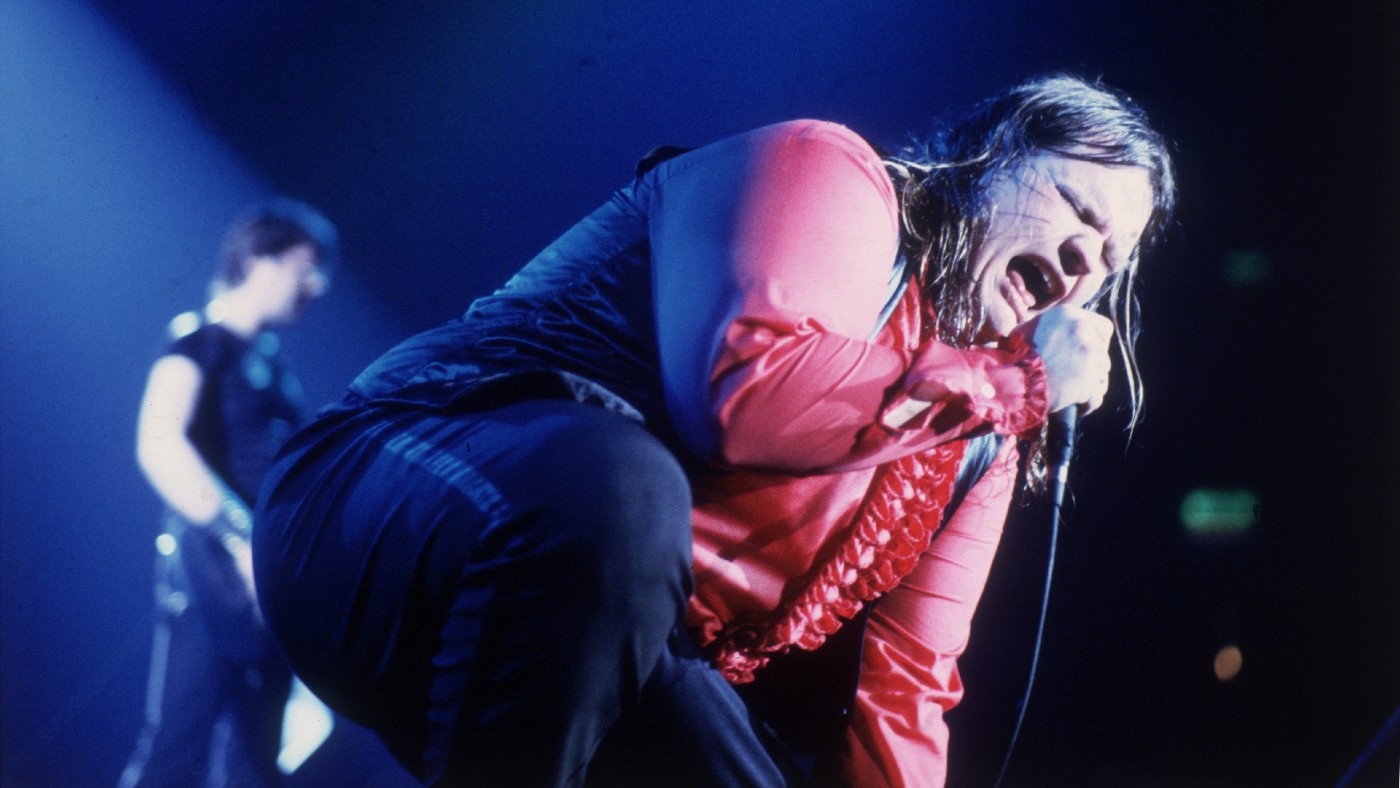
Responsible for one of the biggest-selling albums of all time, Meat Loaf, who died aged 74, was a larger-than-life singer and actor, known for the power of his voice, and the sweaty intensity of his performances: it was said that he put so much into his spectacular live shows that he needed oxygen to recover.
When it was first released, Meat Loaf’s A Bat out of Hell received hostile reviews, as did his peculiarly energetic style. But after he appeared on TV, pouring sweat as he belted out the numbers in a frilly tuxedo shirt, the album took off – and it has since sold 43 million copies. Another of Meat Loaf’s tracks, I’d Do Anything For Love (But I Won’t Do That), was a smash hit in 28 countries.
A free daily email with the biggest news stories of the day – and the best features from TheWeek.com
William Hurt – 13 March

William Hurt, who died aged 71, was once described as having inherited Robert Redford’s position as the “all-American blond Adonis who was neither jock nor jerk”.
Tall and lean with piercing blue eyes and a pronounced cleft chin, he conveyed a cerebral intensity, and had the “distinctive drawl – slow, nuanced, enunciated – of a stage-trained actor”, said the FT. In fact, Hurt was exclusively a stage actor until he was 30, and he often seemed “bemused, even amused, to find himself steering films in the semi-artistic side-currents of mainstream Hollywood”.
During a heady period in the 1980s, Hurt struck gold with every film: he was the hapless lawyer in the erotic thriller Body Heat; and a scarred Vietnam vet at a reunion of college friends in The Big Chill. He won an Oscar for his role as a gay man locked in a South American jail in Kiss of the Spider Woman, and was nominated for his next two roles: a teacher in Children of a Lesser God, and a narcissistic TV anchorman in Broadcast News.
June Brown – 3 April

In the postwar years, June Brown, who died aged 95, worked in the classical theatre with the likes of Alec Guinness and Peggy Ashcroft. But her career had rather stalled when, in 1985, she was offered a part in a recently launched BBC soap opera. She was booked for just three months, but viewers took to the character of Dot Cotton – the gossip-mongering, chain-smoking, Bible-quoting manager of Mr Papadopoulos’s laundrette – and Brown was given a long-term contract.
Over the next 35 years, Dot faced innumerable dramas, many of them involving her criminal son Nasty Nick Cotton (“Hello, Ma!”), and became one of EastEnders’ best-loved characters. Brown had been 58 when she joined the cast; she finally quit for good aged 93.
Dot was a querulous, narrow-minded woman at the start: in 1985, a critic described her as “a chorus, a latter-day tricoteuse, sorting socks as heads and reputations rolled before her”. But over the years, she mellowed to become Albert Square’s moral compass, said The Daily Telegraph.
Dennis Waterman – 8 May
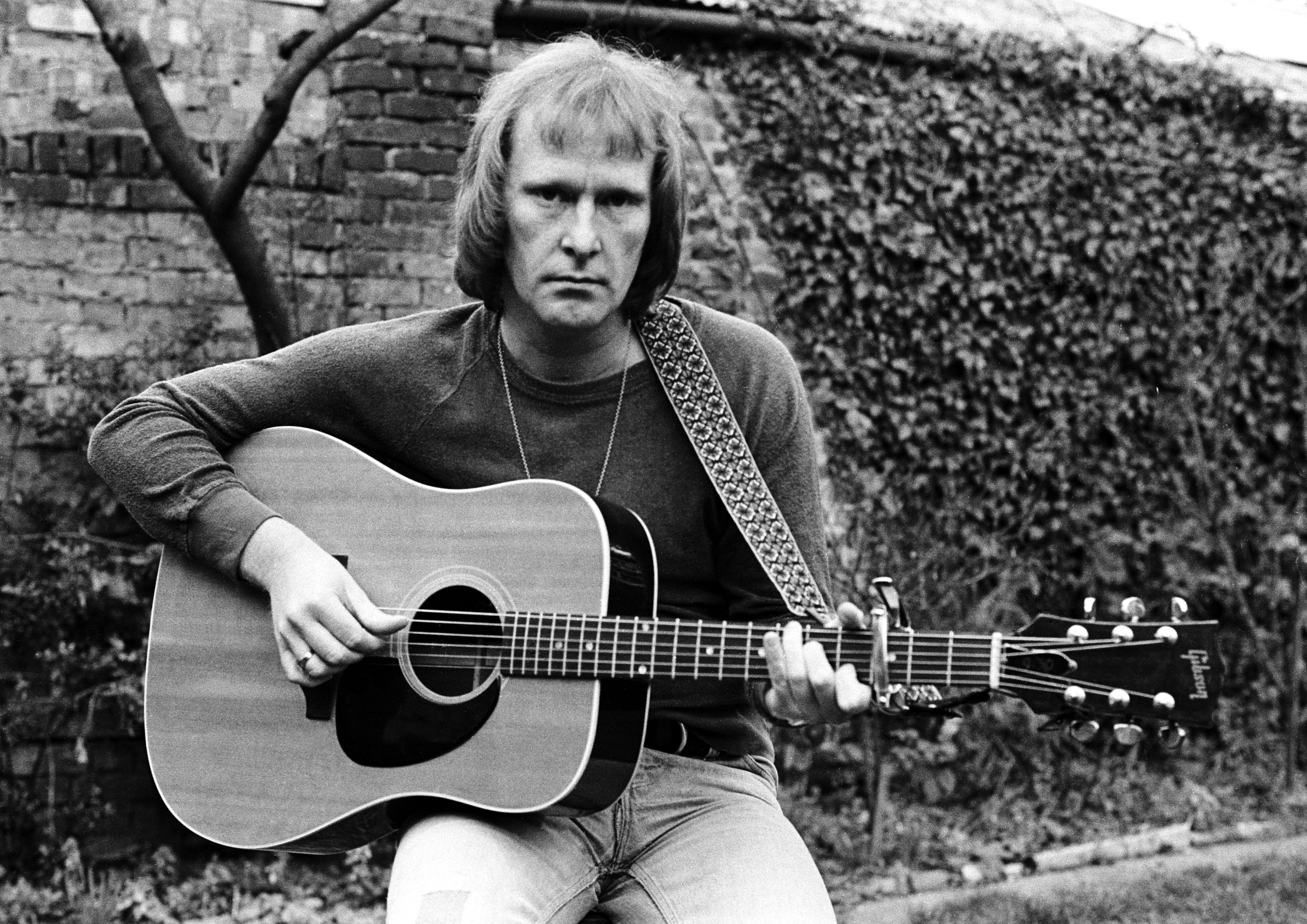
Dennis Waterman, who died aged 74, was known for his roles as “unreconstructed jack-the-lads” in three hit TV series spanning five decades: The Sweeney, Minder and New Tricks. Viewers warmed to his portrayals of tough cops and streetwise geezers, said The Daily Telegraph, sensing that they reflected some of the actor’s own personality. Waterman was certainly a “man’s man”.
He made his screen debut aged 11 as a kidnapped child in Night Train for Inverness (1960); in the same year, he appeared in The Taming of the Shrew at Stratford. He took the title role in Lionel Bart’s Oliver! at the Mermaid Theatre and played William Brown in a BBC adaptation of the Just William books. Aged 14, he moved to Hollywood to appear in a TV sitcom.
However, it was in the 1970s that he became a household name, playing DS George Carter, of the Metropolitan Police’s flying squad, in The Sweeney; the series, co-starring John Thaw, was one of the most successful of the era. A year after it ended, however, he was cast in an even bigger TV hit: Minder. For almost ten years, he played Terry McCann, the hapless ex-con employed by George Cole’s used car salesman Arthur Daley. When Minder finished, he returned to the stage for a few years. He played the Soho barfly in Jeffrey Bernard Is Unwell, and Alfred Doolittle in a West End revival of My Fair Lady.
Vangelis – 17 May
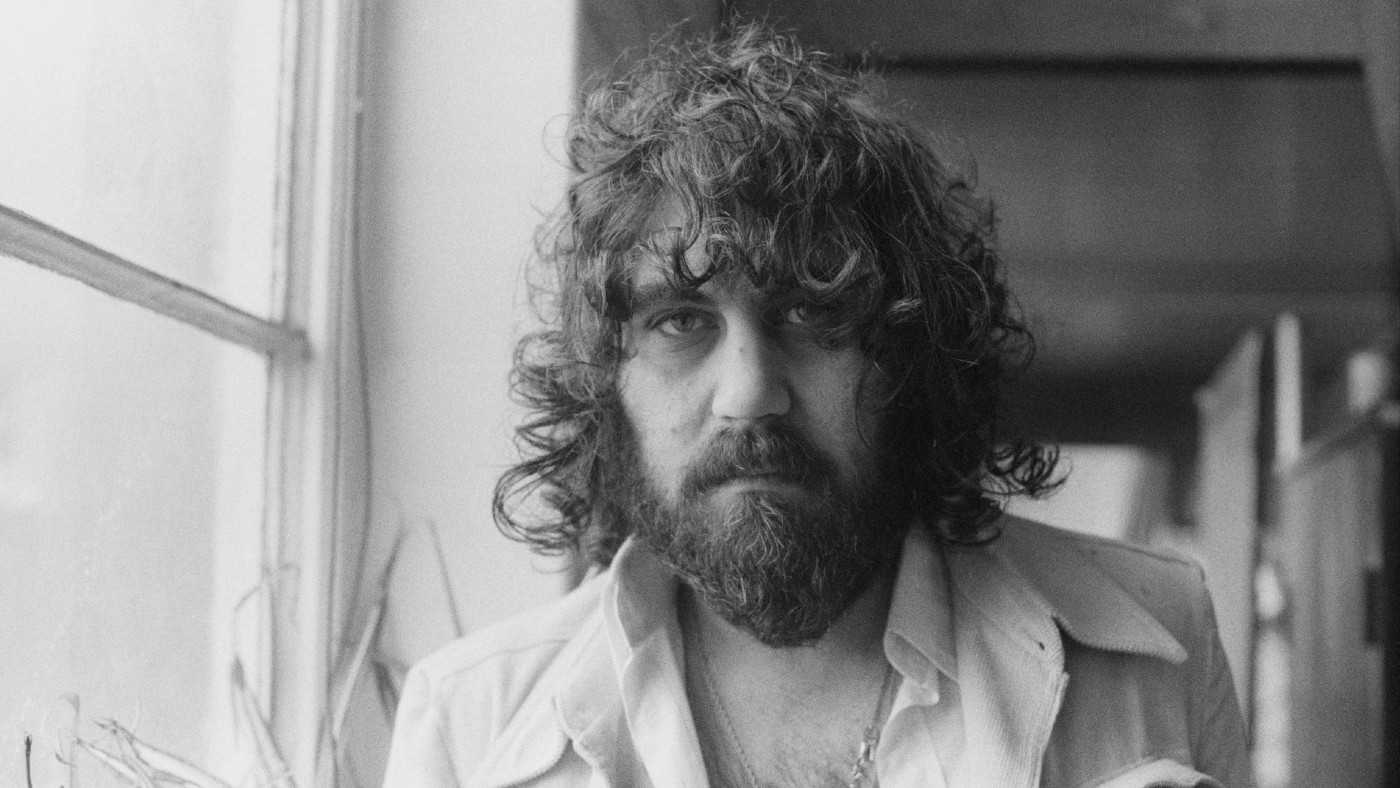
Early in his career, he was in a hit band with Demis Roussos; later, he wrote the score for Ridley Scott’s sci-fi epic Blade Runner. But Vangelis, who died aged 79, will be remembered for the soaring music he wrote for the 1981 film Chariots of Fire, said The Daily Telegraph.
Vangelis’s theme for Chariots topped the charts in the United States, said The Times, but his score for Blade Runner, with its sinister evocation of a dystopian Los Angeles, was arguably even more influential. His later film scores included those for 1492: Conquest of Paradise (1992) and Alexander (2004). He also wrote music for ballet, for Nasa, for the European Space Agency, and for Stephen Hawking’s memorial service.
Hilary Devey – 11 June
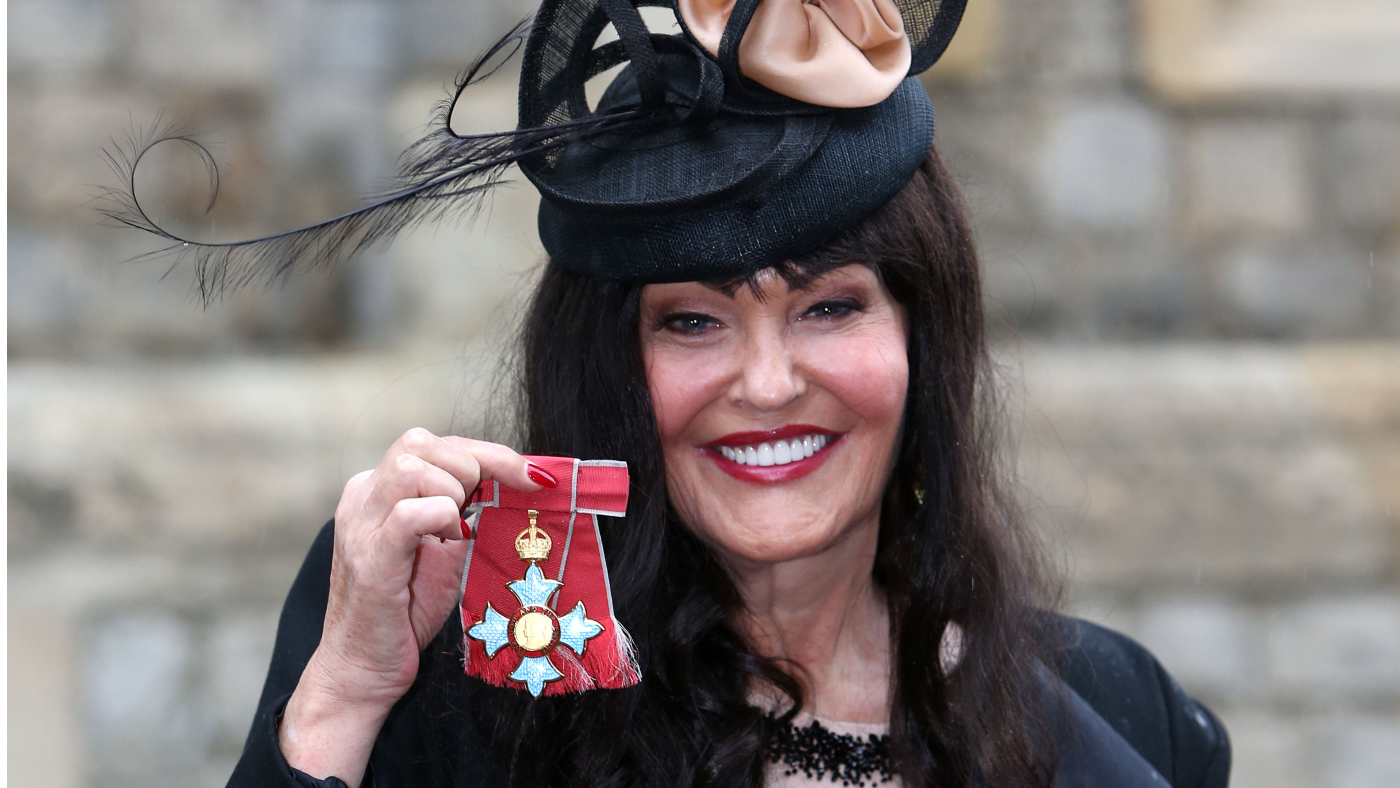
Hilary Devey, who has died aged 65, became famous when she joined Dragons’ Den, the TV show in which budding entrepreneurs pitch their ideas to a panel of multimillionaire investors. A businesswoman who’d got to the top in the traditionally masculine world of freight and logistics, Devey was only on the show for about a year, yet she made a lasting impression, owing to her no-nonsense approach, gravelly voice and distinctive appearance.
In the mid-1990s, Devey founded her own freight distribution business, Pall-Ex. Her bank manager had refused her a loan, so she’d sold her house and her car to finance the company. The first couple of years were tough but before long, she had become a millionaire; and 20 years later, Pall-Ex had an annual turnover of £100m.
Devey made her first TV appearance on The Secret Millionaire, living incognito on a housing estate in Rochdale. She’d seen poverty as a child, she said, but this was of a different order. That led to more media appearances, and to her stint on Dragons’ Den.
Dame Deborah James – 28 June

Dame Deborah James was a teacher, campaigner and podcast host who became known to the public as “Bowelbabe”. At the age of 35, the mother of two had been diagnosed with stage-4 bowel cancer; she was told that only 35% of patients at that stage live another year, and only 8% are alive in five years. The odds were terrible; but James was determined not to be a victim, said The Times.
She was offered a column in The Sun; she became the patron of Bowel Cancer UK; and she teamed up with two women with breast cancer – Rachael Bland (who died in 2018) and Lauren Mahon – to make the BBC podcast You, Me and the Big C. It was lively and frank, and James was its “outrageous heart”, said The Guardian.
She also launched her Bowelbabe Fund, hoping to raise £250,000 for cancer charities. By the time she died, aged 40, it had raised almost £7m. “I just cannot thank people enough for their generosity, because it just means so much to me,” she said. “It makes me feel utterly loved.”
Nichelle Nichols – 30 July
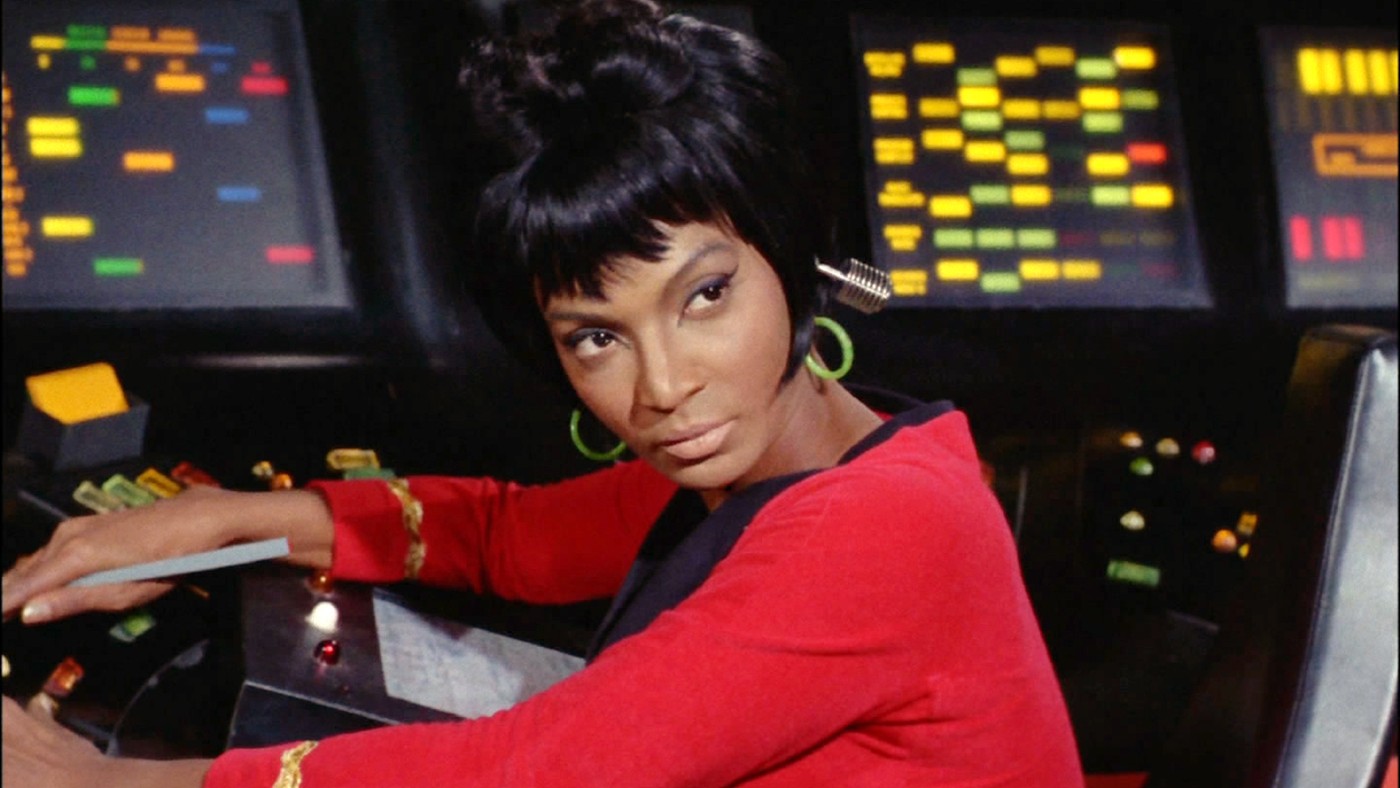
Nichelle Nichols, who died aged 89, was a member of the original cast of Star Trek – and the only African American on the Starship Enterprise. Gene Roddenberry had written the role of Lieutenant Uhura (the name is based on the Swahili word for freedom) as part of his vision for a progressive future for America, said The Guardian; but during filming, Nichols noted that whenever scenes had to be shortened, it was her lines that got cut. “Eventually, I was down to: ‘Hailing frequencies open, sir.’”
After one season, she was offered a plum role on Broadway, and decided to quit. It was a chance meeting with Martin Luther King Jr that changed her mind. Professing himself a fan, the civil rights leader told her that she was the first African American actress in a non-stereotypical role, one with “honour, dignity and intelligence”, she told an interviewer in 2011. “He said: ‘You simply cannot abdicate. This is an important role. This is why we are marching. We never thought we’d see this on TV.’”
She duly stayed on the show, and in season two, in an episode called “Plato’s Stepchildren”, Uhura and Captain Kirk (William Shatner) took part in one of the first interracial kisses on US television.
Olivia Newton-John – 8 August

Olivia Newton-John, who died aged 73, sold more than a hundred million records and sang some of the biggest pop hits of the 1970s and 80s. One of them, Physical, spent ten weeks at No. 1 on the US Billboard charts in 1981, and won a Grammy for its video, said The Times. But in the public imagination she will always be Sandy, the “chaste teenage prom queen” in the 1950s-set film musical Grease.
Newton-John was 28 when she was put forward for the role of Sandy Olsson, the goody-goody, new girl at the local high school, who falls for John Travolta’s leather-clad bad boy Danny Zuko – and in the final scenes, swaps her demure frock and neatly tied-back hair for skin-tight black Spandex pants and a vampish bubble perm. She was worried she was too old for the part, but Travolta, who was 23, had fought for her to be cast, and in the screen test, she recalled, years later, “there was an attraction that kept the chemistry going”.
Boosted by a string of hit singles – Greased Lightning, Summer Nights, You’re the One that I Want, Hopelessly Devoted to You – Grease became a cultural phenomenon with enduring appeal.
Hilary Mantel – 22 September

Hilary Mantel, who died aged 70, started her first book in her 20s, and over the next 30 years she produced about a dozen novels. Most, she said, focused on the lives of “odd and marginal people”, and although they were critically acclaimed, her readers remained a “small and select band”. She was, she said, a “minority interest”. Then, when she was in her mid-50s, she decided “to march onto the middle ground of English history and plant a flag”. The result was Wolf Hall (2009), the first volume in her Thomas Cromwell trilogy.
Wolf Hall was the novel “she had been waiting all her career to write”, said The Guardian – and it catapulted her to worldwide fame. The book and its follow-ups sold five million copies; they were turned into a TV series, starring Mark Rylance; and Mantel adapted them herself for the RSC stage.
She became the first woman to be twice awarded the Booker Prize – for Wolf Hall, and for its 2012 sequel Bring Up the Bodies; and she was routinely described as one of the greatest novelists of her generation.
Coolio – 28 September

Coolio, who died aged 59, was one of the most successful West Coast hip-hop artists of the 1990s, and did much to bring the genre into the mainstream. He had several hits, including the C U When You Get There, with a melody based on Pachelbel’s Canon, and Rollin’ with My Homies, which featured in the film Clueless; but none matched the success of his ominous yet melancholic megahit Gangsta’s Paradise.
Coolio claimed to have written the song at a single sitting, said The New York Times, after hearing Stevie Wonder’s 1976 song Pastime Paradise playing in the studio of his manager’s house in LA. “I sat down and started writing,” he told Rolling Stone. The first words that came to him were based on Psalm 23 – “As I walk through the valley of the shadow of death, I take a look at my life and realise there’s nothin’ left” – and became among “the most widely remembered” lyrics in 1990s rap.
In 1995, Gangsta’s Paradise topped the charts in the US, and across Europe and Australasia; it became the first rap single to sell a million copies in Britain; it won Coolio a Grammy; it inspired a parody, Amish Paradise, by “Weird Al” Yankovic; and on YouTube, the video recently notched up a billion plays.
Angela Lansbury – 11 October
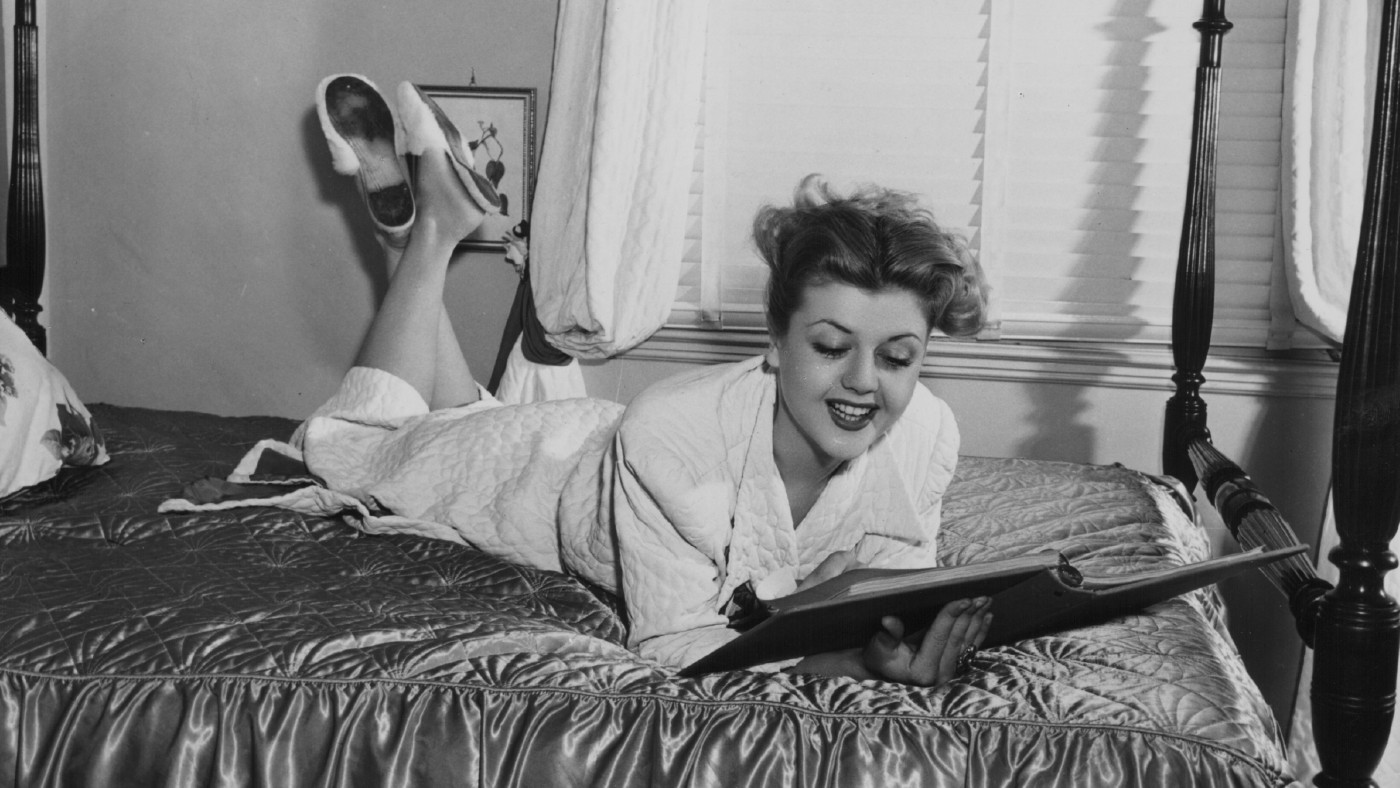
Angela Lansbury became a household name in the 1980s thanks to her role in the series Murder She Wrote. The show, about a writer and amateur sleuth, ran for 12 years and made her one of the richest women in America, with an estimated $100m fortune.
But her career had begun decades earlier. Her big break actually came in 1944 when, aged 17, she was offered her first screen role, as the maid in Gaslight, for which she received an Oscar nomination for best supporting actress, and an MGM contract. She appeared with Elizabeth Taylor in National Velvet (1944), and was then cast as a music hall performer in 1945’s The Picture of Dorian Gray. She was only on screen for 15 minutes, but it won her a second Oscar nomination. In 1971, she was offered one of her most beloved film roles, as the kindly Miss Price in Disney’s Bedknobs and Broomsticks.
Lansbury carried on working, into her 90s, in film and TV roles as well as on stage, in a series of hit musical productions, including Sweeney Todd, A Little Night Music and Blithe Spirit. Even when – aged 86 – she was diagnosed with a hairline hip fracture three days before the opening of Gore Vidal’s The Best Man, she refused to pull out. Instead, she simply added a cane to her role. “It’s like being on a bicycle,” she said of her work ethic. “I just put my foot down and keep going.”
Robbie Coltrane – 14 October
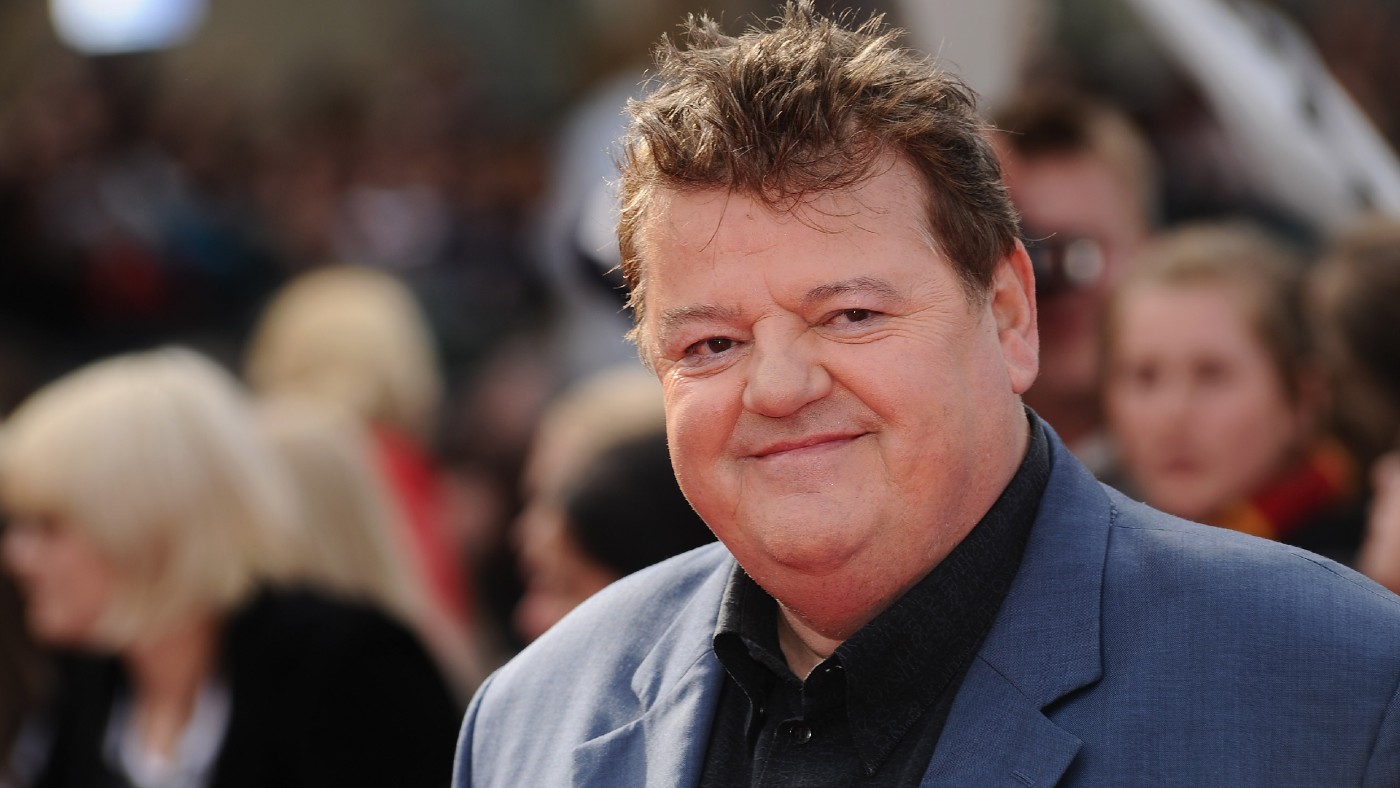
Robbie Coltrane, who died aged 72, became familiar to British audiences in the 1980s, when he started to crop up in TV comedies such as The Young Ones and Blackadder. But it was his lead role in Jimmy McGovern’s dark, Manchester-set police drama Cracker that cemented his reputation as a serious actor, said The Times.
Cracker attracted audiences of up to 15 million in the early 1990s and Coltrane conveyed enough vulnerability behind his character’s brooding, bullying exterior to become an unlikely sex symbol, and he won three consecutive Baftas for his performance.
J.K. Rowling was determined from early on that when her Harry Potter books were filmed, Coltrane should play Hagrid, Hogwarts’ half-giant gamekeeper. The franchise would keep him busy for the next ten years. By the time he returned to TV in 2016, in National Treasure, a drama about a TV star accused of historical abuse, he was in constant pain with osteoarthritis, and had to walk with a stick, which limited the roles he could take. But thanks to the Harry Potter films, he was by then rich enough not to have to work.
“The legacy of the movies is that my children’s generation will show them to their children,” he said. “So you could be watching it in 50 years’ time, easy. I’ll not be here, sadly, but Hagrid will, yes.”
Christine McVie – 30 November

A revered figure in the rock world, Christine McVie, who died aged 79, was a member of Fleetwood Mac, and the writer of many of the band’s best-loved songs, including You Make Loving Fun, Songbird and Everywhere.
McVie joined the band in 1970 and would become part of the “classic” Fleetwood Mac line-up – alongside Lindsey Buckingham, Mick Fleetwood, John McVie and Stevie Nicks. In 1977 they released what would become the seminal break-up album Rumours, which sold “more than 40 million copies worldwide and became one of the biggest-selling albums of all time”, said The Times. “The music was all we lived for,” McVie said. “That was what tied us together while everything else was falling apart.”
-
 Switzerland could vote to cap its population
Switzerland could vote to cap its populationUnder the Radar Swiss People’s Party proposes referendum on radical anti-immigration measure to limit residents to 10 million
-
 Political cartoons for February 15
Political cartoons for February 15Cartoons Sunday's political cartoons include political ventriloquism, Europe in the middle, and more
-
 The broken water companies failing England and Wales
The broken water companies failing England and WalesExplainer With rising bills, deteriorating river health and a lack of investment, regulators face an uphill battle to stabilise the industry
-
 Earring lost at sea returned to fisherman after 23 years
Earring lost at sea returned to fisherman after 23 yearsfeature Good news stories from the past seven days
-
 Bully XL dogs: should they be banned?
Bully XL dogs: should they be banned?Talking Point Goverment under pressure to prohibit breed blamed for series of fatal attacks
-
 Netanyahu’s reforms: an existential threat to Israel?
Netanyahu’s reforms: an existential threat to Israel?feature The nation is divided over controversial move depriving Israel’s supreme court of the right to override government decisions
-
 Farmer plants 1.2m sunflowers as present for his wife
Farmer plants 1.2m sunflowers as present for his wifefeature Good news stories from the past seven days
-
 EU-Tunisia agreement: a ‘dangerous’ deal to curb migration?
EU-Tunisia agreement: a ‘dangerous’ deal to curb migration?feature Brussels has pledged to give €100m to Tunisia to crack down on people smuggling and strengthen its borders
-
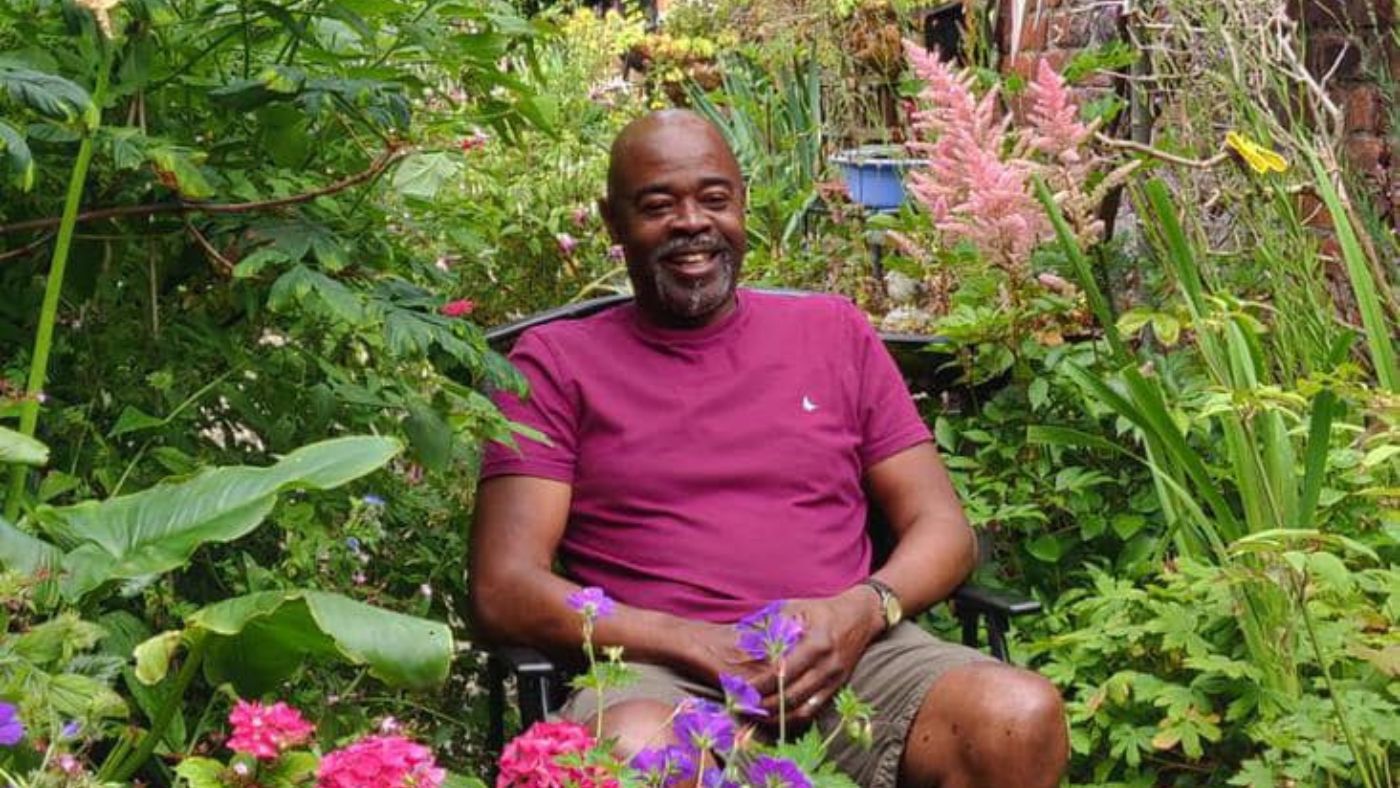 Manchester alleyway transformed into a plant-filled haven
Manchester alleyway transformed into a plant-filled havenfeature Good news stories from the past seven days
-
 China’s ‘sluggish’ economy: squeezing the middle classes
China’s ‘sluggish’ economy: squeezing the middle classesfeature Reports of the death of the Chinese economy may be greatly exaggerated say analysts
-
 Non-aligned no longer: Sweden embraces Nato
Non-aligned no longer: Sweden embraces Natofeature While Swedes believe it will make them safer Turkey’s grip over the alliance worries some